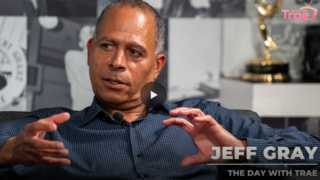
It’s a different world today …
How to change your security and surveillance model to prepare for a state of emergency.
Not too long ago, surveillance departments spent almost all of their time watching table games.
We looked for cheaters, advantage players, and thieves working inside and outside the pit. That was the working model for almost all surveillance rooms, and it worked then. That was a different world.
Today, our world is changing. In earlier, and some would say, better times, our gaming world would not be affected by what was happening outside of it. The dice would continue to roll, the cards would hit the felt, and the wheel would continue to turn, no matter what happened outside in the real world. That’s no longer true, and probably hasn’t been for a long time. We just didn’t know it.
What changed? We now have to be concerned about what is happening around the world, and how that may affect our guests, employees, and our property. It’s no longer all about card cheats and small-time criminals. It’s about ensuring that our employees and guests are not attacked or shot.
We never really had to worry about that before. We are in the midst of a continuing threat environment that should change how we approach the security of our properties.
I think a real sign of the times is the recent decision by Disneyland and other major theme parks to add security measures, including metal detectors and bag checks. Disneyland and Disney World have long been recognized by security professionals and the general public as safe places to take your family. I’m sure that they will continue to be so. But it is interesting to note that they did feel that it was time to enhance their security in order to protect their guests and employees. I think we in gaming need to start thinking the same way. It is a different world with different security challenges.
We don’t have to look far for examples of our new world. We’ve had the terrorist attacks in Paris, and then in San Bernardino, Calif. In Las Vegas, a few days before Christmas, a homeless young woman ran over thirty-six people on the Strip, killing one and critically injuring others. Why? I don’t know, and neither does anyone else at this point. And it’s not the first time that someone has attacked our tourists or employees, or that they became victims of someone who had an ax to grind and didn’t care who they hurt. Today, security and surveillance teams must be constantly prepared for a critical event or emergency, such as an active shooter, workplace violence, or someone who just decides that they’re going to use whatever they have at hand to hurt people. This has become a continuing saga, and unfortunately, it isn’t going away for a while, if it ever does.
Surveillance isn’t trained for that. Maybe they should be.
How can our surveillance and security departments prevent any of these events or scams from happening, and if they do happen, what can they do about it?
First, surveillance (and security) should be constantly looking for suspicious individuals or unusual circumstances anywhere on the property. Again, it’s not just gaming that we have to worry about anymore. We should patrol all areas in order to protect the property as a whole. We need to be on the lookout for dangerous individuals and situations, and do our best to respond appropriately.
Secondly, I think it is important to understand that we must be prepared for any of these events to occur. It’s certainly been demonstrated that they can occur. For example, our security and surveillance teams must be prepared to immediately react properly to an active shooter. It is, sadly, an event that we may have to handle one day. Our duty and responsibility in that situation is to help our guests and employees find safety. We should also be able to provide first aid to those who may be injured. Remember, the police will respond as fast as they can, but they will, on average, be seven to 10 minutes out. And when they get there, their first job is to engage the shooter. Emergency medical personnel will not enter your property until it is secure. Knowing that, our security and surveillance teams should be prepared to work together to locate, aid, hide, or evacuate guests and employees to safety. This requires an emergency plan to be in place, executives and staff thoroughly trained, as well as regular drills for all personnel. We must do this now, not during an actual event. It will be too late.
Traditionally, the surveillance department watches the money, and the security department takes care of all other security issues and concerns. It is time to change that model. Surveillance must be included in emergency planning and response. The surveillance department brings considerable expertise, skill and the necessary ability to see all areas of the property at once, providing real-time information to security, law enforcement and other first responders.
Security and surveillance working together can quickly identify potential threats, and apply appropriate countermeasures to prevent a critical event from taking place. Should such an event occur, security and surveillance can work together to assist guests and employees, and provide intelligence to law enforcement when it is most needed during the crisis.
Our world has changed, and so has protecting our casino property. Surveillance (and security) must adapt to these changes. Make it part of your surveillance program to consider, plan and prepare for today’s security challenges. You won’t be sorry that you did.







